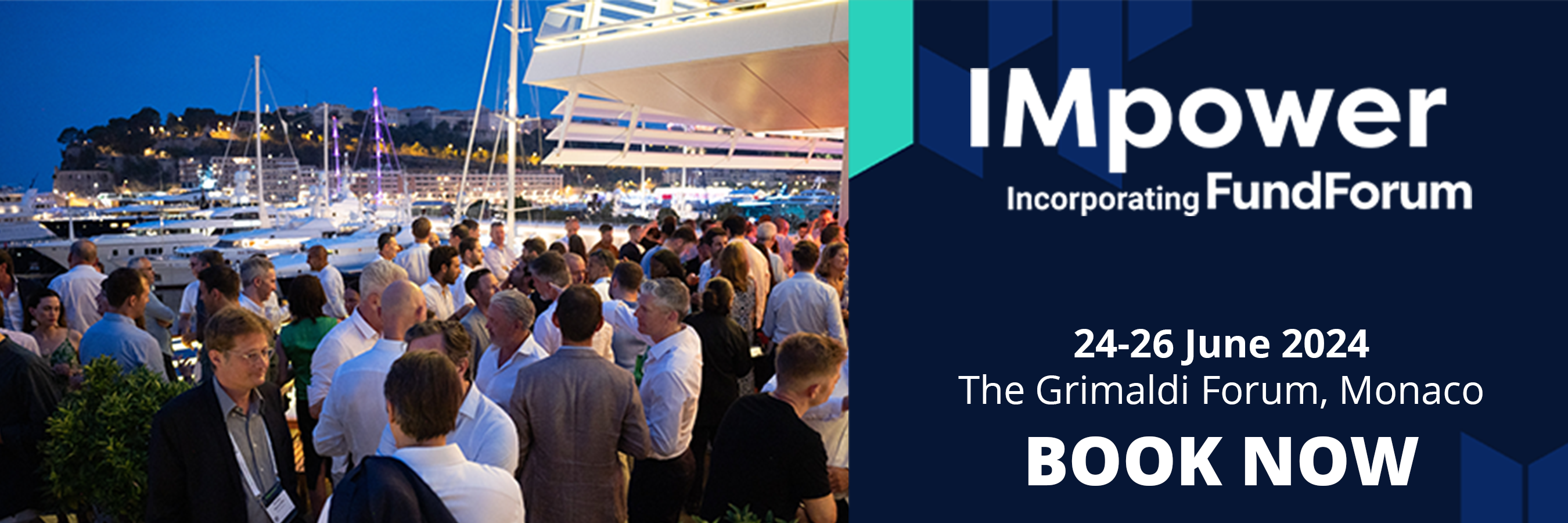When competition slows us down – building the future infrastructure for asset management

Staying competitive is a crucial point of discussion for financial services, especially as the operating environment turns more and more challenging. Geopolitical curveballs have been hugely impactful, and businesses even need to consider their relevance to today’s technologically advanced customers. So competition is important, but what is the consequence of silos and increased secretiveness? Bill Gourlay, Managing Director, Independent Consultants Network, paints a thought-provoking picture of an industry in disharmony.
Every now and then, a watershed moment happens for an industry, when its future direction changes and nothing is ever the same again. For some, this is the creation of a new revolutionary product, or technology, or alternatively the arrival of some new hefty entrant to the space. However, the reality is that behind each of these events is months of planning, preparation and development, all leading from an initial discussion where somebody said “Wouldn’t it be good if….” and someone agreed with them.
For the asset management industry, this happens at IMpower | FundForum. There are all the necessary ingredients required for this sort of landmark moment. Senior leaders from across the investment landscape, brought together for the very purpose of holding conversations that will help their businesses grow. However, in addition to this is the very real hope that firms will also spend time to think about how the industry can improve across the board. Understanding that line, where competition becomes a pointless hindrance to progress, will be a critical factor that each of these leaders will need to carefully consider.
From time to time we’ve all heard the detractors saying; “a conference, in Monaco, in June? Well that must be a jolly”. However, the reality is that over the years, many landmark deals have been done on the Cote d’Azur. Companies have been bought and sold, merger agreements made, significant hires (and fires!) secured, and obviously plenty of services purchased. Is it the weather, the ambience, or just the “offsite” freedom to think a little differently, that allows these events to take place? No one can really be sure, but the precedent has been set and that’s why we keep coming back.
So, given these factors, what is it that the asset management industry should be focused on? Perhaps the latest trading technology, innovative fund structure, or a clever new investment technique? Well, from my view at least, the biggest win lies in the operational landscape. Now, I know that this isn’t always considered to be the sexiest end of our business, but please hear me out. Almost a decade ago, a colleague coined the phrase “operational alpha” and now, as then, the term still holds true. Whilst complicated algo trading might receive great focus as it collects multiple tiny shavings of profit in the investment process, the reduction of inefficiencies in the operational part of our world is a much simpler way to bring vast savings and bottom line benefit to the funds industry.
The importance of cooperation in operations in asset management
Tokenisation, Blockchain and AI – ah, I see that I’ve caught your attention again – are all major factors under discussion for our industry today under the digitisation category, but the likelihood is that there will be no tangible progress without greater cooperation between our firms. Blockchain is a case in point as, whilst there are firms who make great claims about the wonders that they have produced with it – which in many cases seems to primarily be a marketing exercise – there really hasn’t been market-wide adoption of this technology in the way that might have been anticipated. We have also seen the proliferation of different versions of the solution which, as was the throw-away line at a former employer then results in “the one standard is that there’s no standard” and just leads to more confusion or doubt about the right path to follow.
Tokenisation, as recently recorded in the Investment Association’s Technology Working Group’s second report, is crucial to the UK thriving as a digital marketplace and “set to be a key driver of this success”. So, if that’s the case, why would a report of this sort just make vague recommendations and suggest that firms go off to see what they can make of it, whilst closing the report stating that this industry group will now go off to focus on AI? Surely, this is the time when competition needs to be put to one side and, having come so close to this goal, the industry grabs the bull by the horns and formally pushes things through to a workable conclusion – together!
There is a thought that often gets circulated regarding the need to allow competitive forces to work things out, but this is not that time. An uncertain route, across something that the industry could use to completely revolutionise the way that it operates, will simply result in huge amounts of wasted time, effort and spend if done in small cliques. Surely none of us would see that as good use of the money paid to us by clients. Think back to the first KIID documents, where product teams across the industry pondered within their own walls what this thing should look like, based on the lines of descriptive text suggesting what the various elements should be. Some people drew an elephant, whilst others came up with a mouse going on holiday*, and that is hardly a constructive outcome to repeat again. Let’s just agree on what we all want to do, cut out the doubt and get on with it. Everyone going off in their own directions and coming up with a proliferation of incompatible solutions is of no benefit to anyone.
Standardising the digital market place
So, if we can agree that constructively sitting around a table and coming up with an approach to the effective implementation of tokenization across our industry is a good idea, then we’re immediately making progress. Task the group to build a model, create the guidelines around the technology required, and take a decision regarding whether this sits on a centralised platform or operates differently – but come to a clear consensus at a nuts and bolts level. To be clear, this isn’t the time for group members to send staff along to spectate, or even disrupt, as has certainly been the case in several industry working groups of the past. Now is the time to look at the technology available and find the most effective way to apply it to the operational needs of our industry. To be clear, that also probably means actively seconding staff to the project, thereby allowing the participants to focus on the task in hand, not be dragged back to their desk as the boss has a priority report to prepare, and also to attempt to allow these intelligent individuals to work together as an industry team without excessively waving their corporate colours.
Indeed, since this article was first penned, a highly insightful paper has been jointly published on 29th May 2024 by DTCC, Clearstream and Euroclear called “Building the Digital Asset Ecosystem” setting out much of the roadmap that needs to be followed – and necessitating a quick edit on my part. In it are laid out six core principles that they believe are the key elements required in order to allow the industry to come together and develop comprehensive standards for the digital asset marketplace. The message from this is twofold;
- We are at such an important juncture for our industry that enormous organizations, such as these, who might normally be seen as competitors have understood that the time is right to put those thoughts to one side and work together to build a model for the future.
- A roadmap has now been constructed and handed to the rest of the funds industry to build upon to the point where all parties can agree on that future model. These other parties work for the asset management community, so it is up to us/you to ratify this development and take the lead in bringing it to fruition.
Why would we be doing all this? Well, for as long as I’ve worked in the asset management industry there have been discussions regarding the inefficiencies of the operational model. Many of us seemed to have the letters “STP” tattooed on our corporate biceps while being at great peril of a new mysterious entrant (perhaps Google, Amazon, or similar) bursting onto the scene and eating our lunch. We now have technologies available that can make these changes, but we need to recognize that and realize that now is the opportunity to work together in order to create that new model. Asset managers should be competing on clever investment strategies and great new products that their clients want to buy, not on the mundane operational infrastructure. Let’s agree on the gauge of the railway, lay the new track, but then the trains and the service are up to you.
True innovation: What next for asset managers?
As for leading this great new initiative, well that responsibility is clear and brings us full circle. The asset owner community wants good performance at a reasonable price, but it is fair to say that their interest in what happens behind the operational curtain is reasonably limited. The asset servicers will do what their client asks them to do and, for many of us who have brought innovation to this space, “the client isn’t asking for this” were perilous words that have brought many a good initiative to a grinding halt. So, this is where the buck stops for asset managers.
Our industry needs to change, has the opportunity, but it will take the asset managers and their industry organizations, such as the Investment Association, to demand this change – nay, lead this change. Simple guidelines will not be enough, as that creates drift and uncertainty, so clear detailed plans brought forward by representatives of the key stakeholders in our industry via a detailed working group is the way forwards. Yes, there will inevitably be winners and losers, but those who find their old ways eroded will need to look to evolve their activities in line with the new opportunities that this new model will create.
So, here we are, in Monaco, with the right people, in the constructive atmosphere of the IMpower | FundForum conference. Could this be the time that people point back to, where everything changed for the better? It’s up to you!
